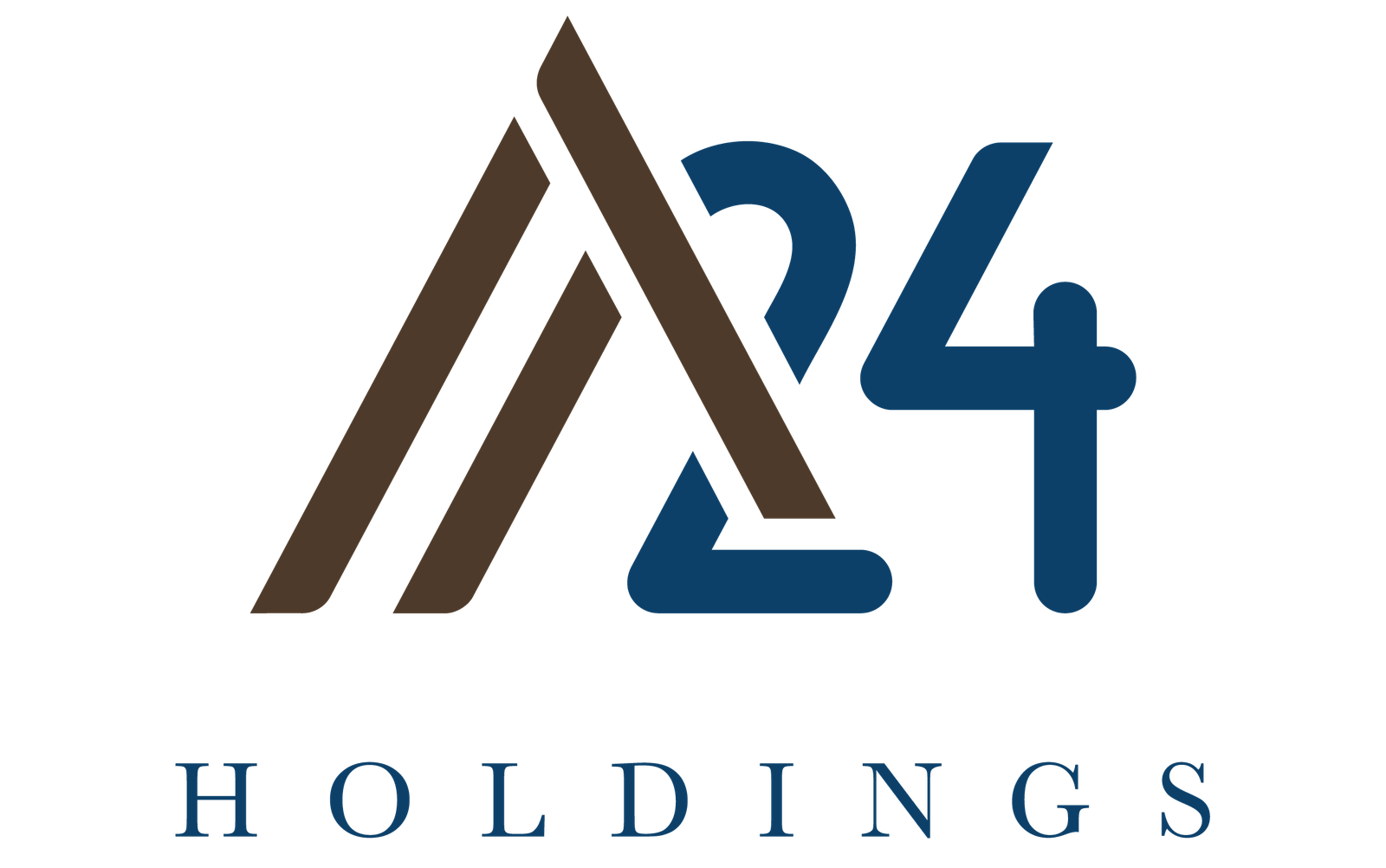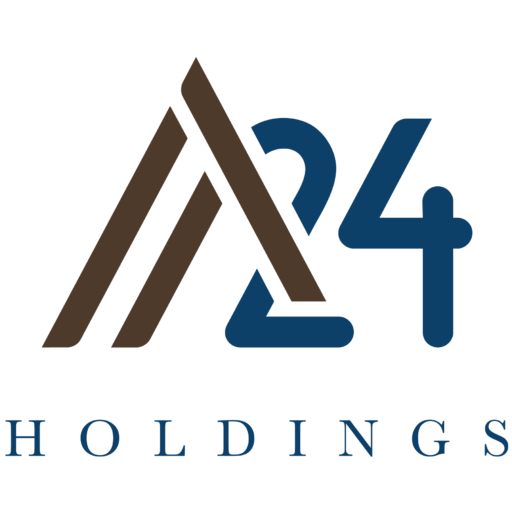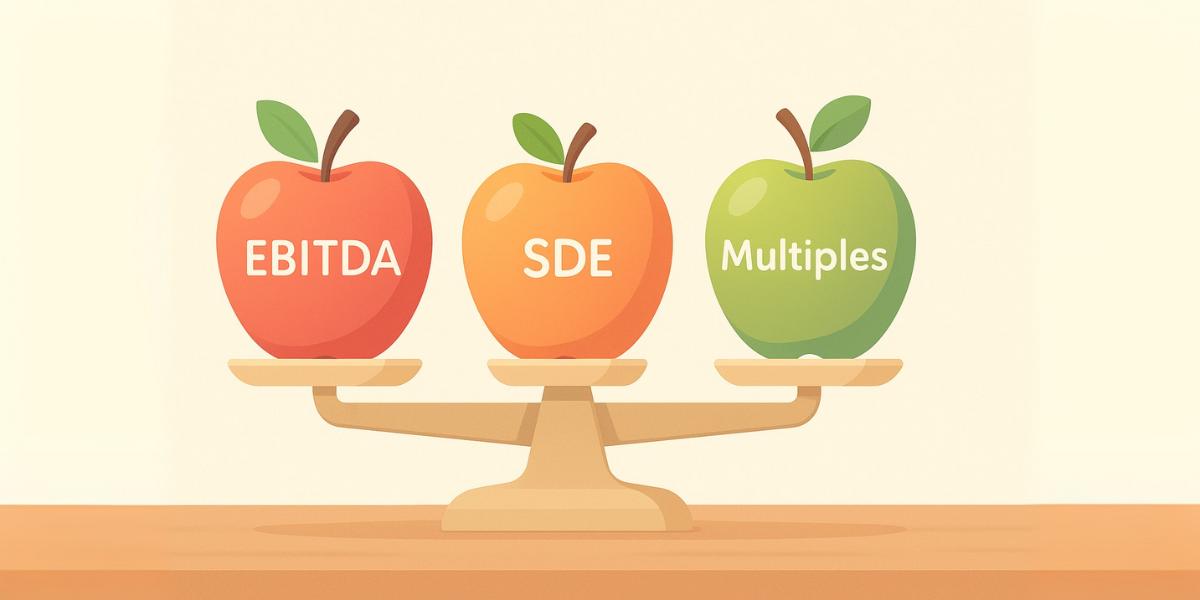If you’ve ever considered selling your business, you may be surprised by how differently buyers can view the exact same company. Two buyers can look at the same financials and come back with very different offers, sometimes wildly apart. Why does this happen?
Valuing a business isn’t like pricing gold or oil. There’s no single number. Instead, it’s a mix of math, perception, and deal structure. Each buyer brings their own goals, risk tolerance, and vision for the future, and those differences shape the final offer.
Why Numbers Are Just the Starting Point
Valuation begins with the numbers: earnings, profits, and margins. But it rarely ends there. Buyers interpret those numbers through their own lens.
One buyer may prize steady, predictable cash flow. Another might see your company as a way to expand their own operations. A third could view it as high-potential but risky.
The math sets a baseline, but psychology and strategy push the price up or down. That is why identical financials can produce very different offers.
If you are new to the basics, our formula to evaluate a small business is a good place to start. You might also find our guide to multiples, EBITDA, and SDE useful background before diving deeper into how perception shapes value.
Types of Buyers And Their Motives
Not all buyers are alike, and their motives matter. Understanding who is making the offer explains why numbers diverge.
- Self-Funded Searchers
Entrepreneurs investing their own money or small investor backing. They are hands-on operators, cautious with risk, and focused on stable cash flow. Their offers often lean conservative.
- Search Funds
Investors back an entrepreneur (the “searcher”) to acquire a business. They balance caution with growth potential since they must deliver results to their backers.
- Strategic Buyers
Established companies looking to expand through acquisitions. They often pay more if your business creates synergies such as new markets, customers, or cost savings.
- Private Equity Firms
Professional investors building platforms in specific industries. They can be aggressive bidders if your business fits their long-term growth and exit strategy, though they expect scalability and strong systems.
Each of these buyer types brings a different risk appetite and time horizon, which directly affects how much they are willing to offer.
How Deal Structure Shifts the True Value
A purchase price headline does not tell the whole story. The way an offer is structured can be just as important as the number itself.
- Mostly Cash Upfront: A buyer offering $3 million, with $2.7M at closing and the rest over five years, delivers near-full value quickly while managing their risk.
- Performance-Based Payments: Another buyer might offer $2M today, with an extra $1M only if revenues grow. On paper, both deals total $3M, but the seller takes on more risk in the second.
- All-Cash Offers: Attractive at first glance, but usually discounted, such as $2.5M instead of $3M spread out, because the buyer takes on no future risk.
Common Deal Structure Tools
Seller Financing
Instead of paying the full price upfront, the buyer pays part at closing and finances the rest directly with the seller. Payments come from the business’s future cash flow, often at lower interest than a bank would charge. This eases the buyer’s upfront burden while providing steady income for the seller.
Forgivable Notes
A variation of seller financing where part of the debt is forgiven if certain conditions are not met. For example, if revenue falls short, a key customer leaves, or a crucial employee resigns. This protects the buyer while motivating the seller to leave the business on solid footing.
Earnouts
The opposite of forgivable notes. After receiving a guaranteed amount at closing, the seller earns additional payments if the business hits agreed performance targets. This allows sellers to capture upside if the company grows while reducing the buyer’s initial risk.
Together, these structures can bridge the gap between what a seller believes the business is worth and what a buyer is willing to risk upfront.
The Intangible Value Sellers Care About
For many owners, selling is not just about dollars. It is about trust: who will look after employees, customers, and the reputation built over decades.
Years of long nights, personal sacrifice, and community presence make a business more than a financial asset. Employees often feel like family, and clients become long-term relationships.
That is why sellers frequently ask:
- Who will take care of my team?
- Will my clients still get the service they expect?
- Will my reputation be respected after I step away?
These questions go beyond finances. They reflect the personal legacy that owners want to protect when handing their business to someone new.
How to Evaluate Very Different Offers
If you receive two very different offers, it does not mean one is right and the other is wrong. It reflects different perspectives. The real work is choosing which buyer aligns best with your goals.
Three key steps help sellers navigate this:
1. Get Your Business in Shape
Reduce risks, diversify clients, and make sure financials are clean. A well-prepared business earns more confident and higher offers.
2. Define Your Ideal Buyer
Beyond price, ask: Who has industry knowledge? Who can manage the business well? Who respects your company’s culture? You can use our four questions to ask before selling your business to think this through before negotiations begin.
3. Use Structure to Bridge Gaps
Creative financing tools like earnouts or seller financing can help close valuation gaps while aligning incentives.
A New Way to Think About “The Right Offer”
The real decision is not simply between Offer A or B. It is about finding alignment with the buyer who can carry your hard work, people, and reputation into the future. Numbers matter, but legacy, fit, and trust often matter more.
The most successful exits happen when sellers look beyond spreadsheets and choose the buyer who shares their vision.
At AA24 Holdings, we understand that selling a business is deeply personal. We are a New England-based business buyer focused on continuing the legacy of successful local businesses owned by individuals preparing for retirement.
Learn more about how we help owners protect their legacy at www.aa24holdings.com or reach us at contact@aa24holdings.com.





